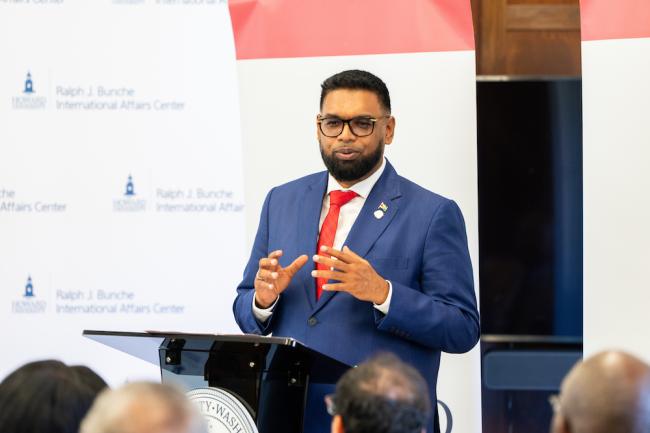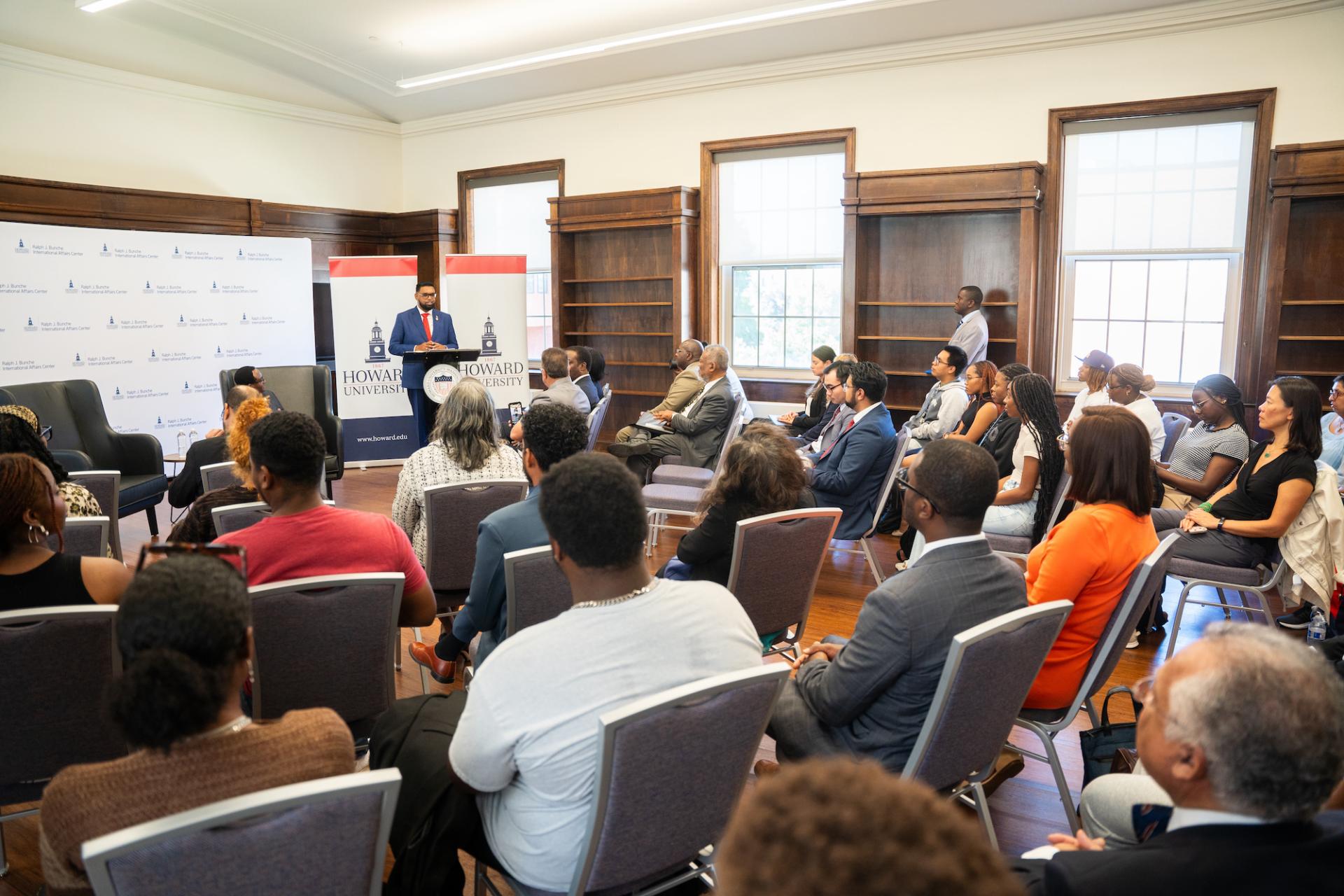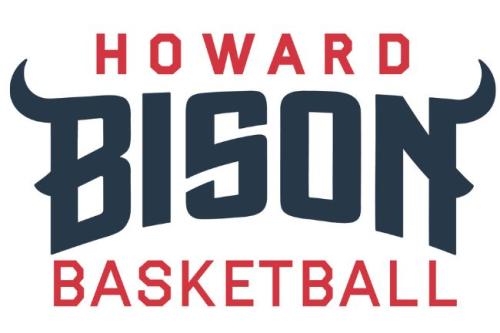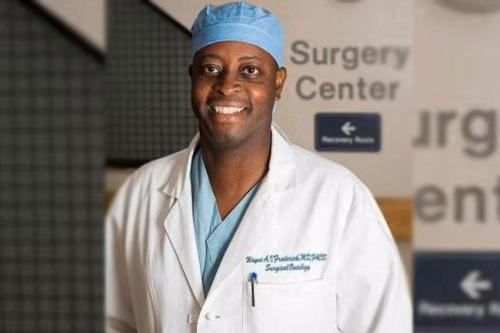On Thursday, September 14, nearly 70 members of the Howard University community – including Howard University President Ben Vinson III, PhD – gathered in Frederick Douglass Memorial Hall to welcome Guyana President Mohamad Ifraan Ali to campus. Ali visited the United States to attend the United Nations Assembly in New York City on September 18 and 19.
The Ralph J. Bunche International Affairs Center joined with members of the Caribbean Student Association in receiving Ali to the University. Tonjia Hope, M.A., director of the Bunche Center, said Ali’s presence on campus exemplifies Howard’s historical reputation within higher education to host global and diasporic leaders. The Bunche Center is celebrating 30 years of service in 2023.
“We must provide a multitude of perspectives, but also understand the perspectives of the countries that are not in the limelight all the time,” Hope said, as the University also welcomed Germany’s Foreign Minister Annalena Baerbock that afternoon. “It was important for the students to hear from different heads of states. It gives them a different understanding.”
She continued, “Visits from the president of Guyana, to celebrate the history and relationship between Howard University and that country, we must do more of this to celebrate and uplift each other.”
In Vinson’s opening remarks, he recalled the longstanding relationship between Howard and Guyana, as well as the University’s function as a world leader since its founding.
“Our relationship with other parts of the world, namely Latin America and the Caribbean islands, is arguably just as important to the history of this beloved University,” Vinson said. “Guyana specifically has made an indelible footprint on this campus and our greater Howard family. Our first enrollee from the country, Julius F. Braan, came to the University in 1875, just seven years after our chartering. Cheddi B. Jagan, a 1930s alum of our University, co-founded the People’s Progressive Party, the party [to which] I believe Ali also belonged.”
According to Howard’s Institutional Research and Assessment division, the University has nine Guyanese students currently enrolled for the 2022-2023 academic year: Lakeisha Henry, Ryan Duff, Ozioma Scott, Keith Cort, Aliyah Anthony, Moriah Hamilton, Kaeyla Vanderstoop, Kayla Forde, and Amir Ince. All were in attendance to welcome Ali, who warmly greeted and posed for photos with the scholars of his home country.
Hamilton, a sophomore civil engineering major, said Ali’s visit is valuable representation for Guyana as the country possesses a niche identity amongst the African diaspora.
“We’re in South America, but we don’t identify as South American, we don’t speak Spanish; we speak English and identify as Caribbean,” Anthony explained. “Just to be able to represent in this American space... and be the face of Guyana is great. A lot of people don’t know what Guyana has to offer.”
Ali has served as Guyana’s president since 2020. During his keynote, Ali addressed the student body as the next generation of leaders that will tackle prominent world issues such as artificial intelligence and goals for net-zero gas emissions.






